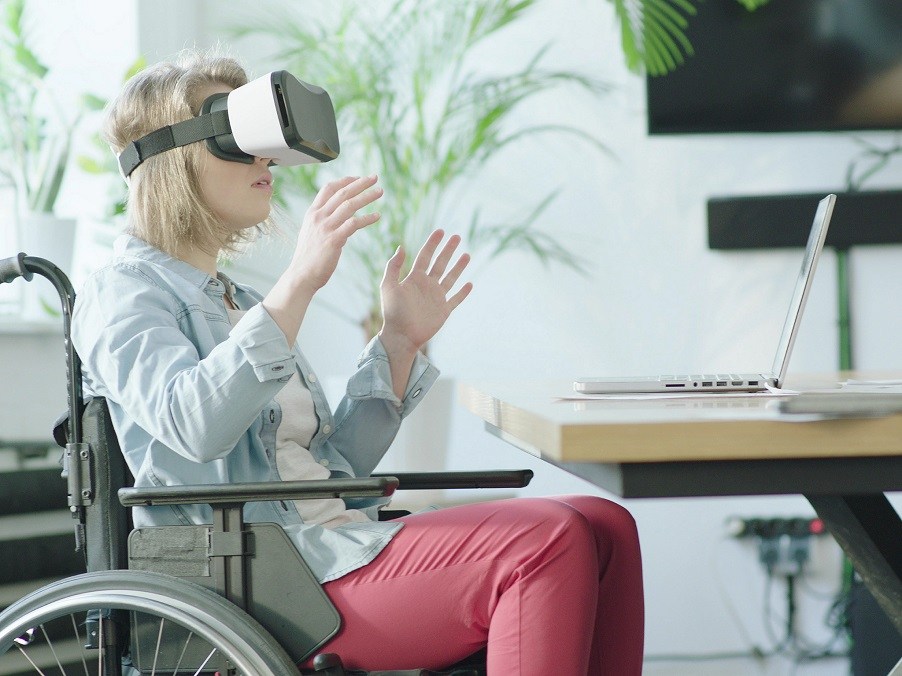There are over 100 million persons with disabilities in Europe. Many persons with disabilities live full and active lives in society, in part due to recent advances in social support and attitudes. For many others, however, empowerment and social inclusion is an uphill battle.
Recent data shows that 28.4% of the EU population with disabilities is at risk of poverty or social exclusion, some 10 percentage points higher than those without a disability. The employment situation is not better with only 50.8% of persons with disabilities of adult age employed, and children and adults with disabilities continue – in their thousands – to be excluded and/or segregated from mainstream education settings.
These statistics paint a rather bleak picture for many persons with disabilities across the continent. The situation of support services for persons with disabilities is not better, with the sector experiencing under-funding and staff shortages for over a decade.
There is a new hope: that digitalisation can revolutionise social support and inclusion; offering up new opportunities and solutions to employment, education and inclusive living for persons with disabilities, including through more effective and digitalised support services.
For instance, new digital technologies can help to reduce the barriers that some persons with disabilities have in coming to work; either by allowing people to work from home and still be digitally connected to the office or by facilitating the accessibility of the transport routes to and from the office.
New technologies are also helping persons with disabilities to live independently through - for instance - new “support robots” or online platforms. If developed in the right way, these technologies will mean that support services are only a simple click away; bringing persons with disabilities much closer to inclusive living and enjoying their human rights.
Technology will also transform how social care and support services are developed and implemented. Such technologies can for instance be beneficial for the professionals who support persons with disabilities on a day-to-day basis; for instance, through distance care apps, or electronic files to better manage workload and optimise work flows and processes. This means that we can create better jobs for the 11 million care and support workers in Europe.
It is no exaggeration to say that digitalisation can really revolutionise social inclusion. Yet, as the statistics show, we are still far from making this a reality for all. There is a clear digital divide for persons with disabilities and support workers. As tech enterprises, policy makers and other stakeholders move forward, they will need to consider how to make the digital transition inclusive for all.
Many questions remain to be solved
- How can we ensure that digital services and products are accessible moving forward?
- How can we guarantee that the right digital services and products that can move independent living forward are developed?
- How can we make sure that social care and support services also make the most of the digital transition?
To provide answers to these questions, the European Association of Service providers for Persons with Disabilities is organising a 2-day Conference to the theme “The Future is Now: Person Centred Technology to Empower People and Disability Services’, on the 13th and 14th October 2021.
Join us and contribute to the debate!
Promoted by EASPD - the European Association of Service providers for Persons with Disabilities. The views belong to the sponsor.

